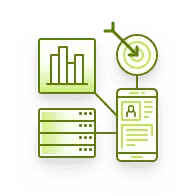9 Critical Capabilities Sales Order Management Software Should Offer You
August 3, 2016 By Stacey Woods

In the competitive space of B2B commerce of consumer products, sales order management software is essential to sustain operational efficiency and to discover and leverage sales growth opportunities.
Choosing the right sales order platform will make a significant difference for brand manufacturers and wholesalers, but not all platforms will give you the same competitive edge.
Here are 9 critical capabilities your sales order management should include…
- Intuitive interface – Arguably the single most important feature. If the interface isn’t intuitive and easy to use from the get go then adoption will fail or at least significantly slow the transition. Users are far more likely to fully embrace an easy to use software that automates much of the manual paper-intensive tasks, fitting in the way they do business. You’re spending good money on your new sales order software so you owe it to your company and sales reps to choose one that makes their work easier and gives them the essential tools to increase productivity.
- Flexibility – In business you need to be light on your feet and able to react quickly to market changes and your order management software needs to keep up with you. You should be able to simply and easily update workflows, forms, business rules, and dashboards, just as quickly as your business changes — and all without writing any code.
- Omni-channel – In-person and online, manage all sales orders from all B2B channels in a single system. Provide sales reps visibility into what their customers are ordering online, and when so they have a full 360O view of customer activity.
- Real-time sales insights – Both management and sales reps can benefit from timely sales insights. Sales reps have order history at their fingertips to better understand the customer and the products that will most interest them when they are customer-facing. Management has access to all sales data and can gain insights into the sales performance of their reps & customers. Based on these insights they can tailor the offers, prices, and promotions on a customer-by-customer basis.
- BYOD – No more paper order-taking, catalogs, order forms, price lists or customer records. With today’s mobile sales software, your sales rep can even use their own devices – mobile phones or tablets. Everyone has their favorite so just make sure the software you choose is multi-platform. The best software can be downloaded to any device for the ultimate mobile CRM solutions. High-res, digital catalogs, simple touch screen ordering B2C-style, easy navigation, favorites, promotions & more, all on the sales reps’ own device. No more piles of paper to carry around or even a laptop. What could be simpler!
- Offline ordering mode – Sales reps on the road or at trade shows don’t always enjoy a solid internet connection. Not being able to work offline can be a major inconvenience so your sales order management software should support an offline work mode. Users need to be able to complete orders, view catalogs and communicate with customers so their work isn’t dependent on the elusive Wi-Fi signal.
- Scalability – Expansion must be one of the long-term, if not short-term goals of your company’s business plan. You don’t want to invest time and money in a platform that cannot grow and change with your company. Scalability and flexibility are essential capabilities of the platform you choose, so it can facilitate and support your company through its growth. Your order management software must not only be scalable in terms of the quantity of data, products, and orders it can accommodate, it must also be flexible and able to adapt so that it continues to reflect your evolving company business, model.
- Seamless integration – Transitioning to a digital management platform should be as painless as possible. Most, if not all, brands, manufacturers and wholesalers will already be using an ERP to a manage all aspects of their business. Selecting an order management software that can integrate with your existing ERP will smooth the transition. The new software should be able to import all existing sales, customer and inventory information from the ERP so that data is immediately available to the sales reps and provide 2-way sync so your ERP is always up-to-date. Look for a software that provides integration to the leading ERP systems like SAP, NetSuite e-Commerce, QuickBooks, Oracle, and more.
- Enable data security – In this day and age of cloud technology, security is a major concern. Keeping your data and customers’ personal data secured must be a priority. Make sure you choose a software that emphasizes users’ privacy and security and has the necessary security certificates to back it up.
Choosing the right sales order management platform will impact your business in the best possible way – Improving management of the order process and saving sales reps valuable time in the field so they have more time to do what they do best, sell!


























